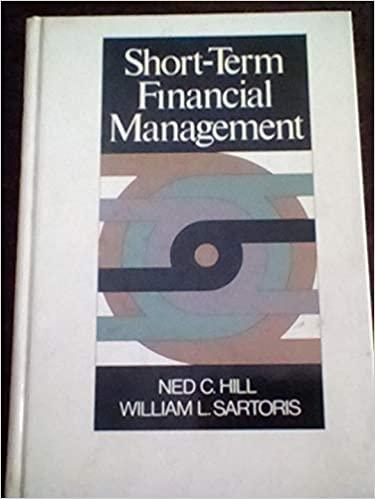Question
Question: Russia is the worlds 3rd oil producer, the 2nd natural gas producer and among the top 5 producers of steel, nickel and aluminum. It
Question: Russia is the worlds 3rd oil producer, the 2nd natural gas producer and among the top 5 producers of steel, nickel and aluminum. It is also the largest wheat exporter in the world (almost 20% of global trade). On its side, Ukraine is a key producer of corn (6th largest), wheat (7th), sunflowers (1st), and is amongst the top ten producers for sugar beet, barley, soya and rapeseed. On the day the invasion began, financial markets around the world fell sharply, and the prices of oil, natural gas, metals and food commodities surged. Following the latest developments, Brent oil prices breached USD 100 per barrel for the first time since 2014 (125$/b at the time of writing), while Europes TTF gas prices surged at a record EUR 192 on 4 March. While high commodity prices were one of the risks already identified as potentially disruptive to the recovery, the escalation of the conflict increases the likelihood that commodity prices will remain higher for much longer. In turn, it intensifies the threat of long-lasting high inflation, thereby increasing the risks of stagflation & social unrest in both advanced & emerging countries. In the rest of the world, the economic consequences will be felt mainly through the rise in commodity prices, which will fuel already existing inflationary pressures. As always when commodity prices soar, net importers of energy & food products will be particularly affected, with the spectre of major supply disruptions in the event of an even greater escalation of the conflict. The drop in demand from Europe will also hamper global trade. In Asia-Pacific, the impact will be felt almost immediately through higher import prices, particularly in energy prices, with many economies in the region being net energy importers, led by China, Japan, India, South Korea, Taiwan and Thailand. As North American trade and financial links with Russia and Ukraine are fairly limited, the impact of the conflict will mainly be felt through the price channel and through the slowdown of the European growth. Despite the prospect of slower economic growth and higher inflation, the recent geopolitical events are not expected to derail monetary policy in North America at this stage. (2022) Critically assess the externalities caused by the above market events for the case of Mauritius.
Step by Step Solution
There are 3 Steps involved in it
Step: 1

Get Instant Access to Expert-Tailored Solutions
See step-by-step solutions with expert insights and AI powered tools for academic success
Step: 2

Step: 3

Ace Your Homework with AI
Get the answers you need in no time with our AI-driven, step-by-step assistance
Get Started


